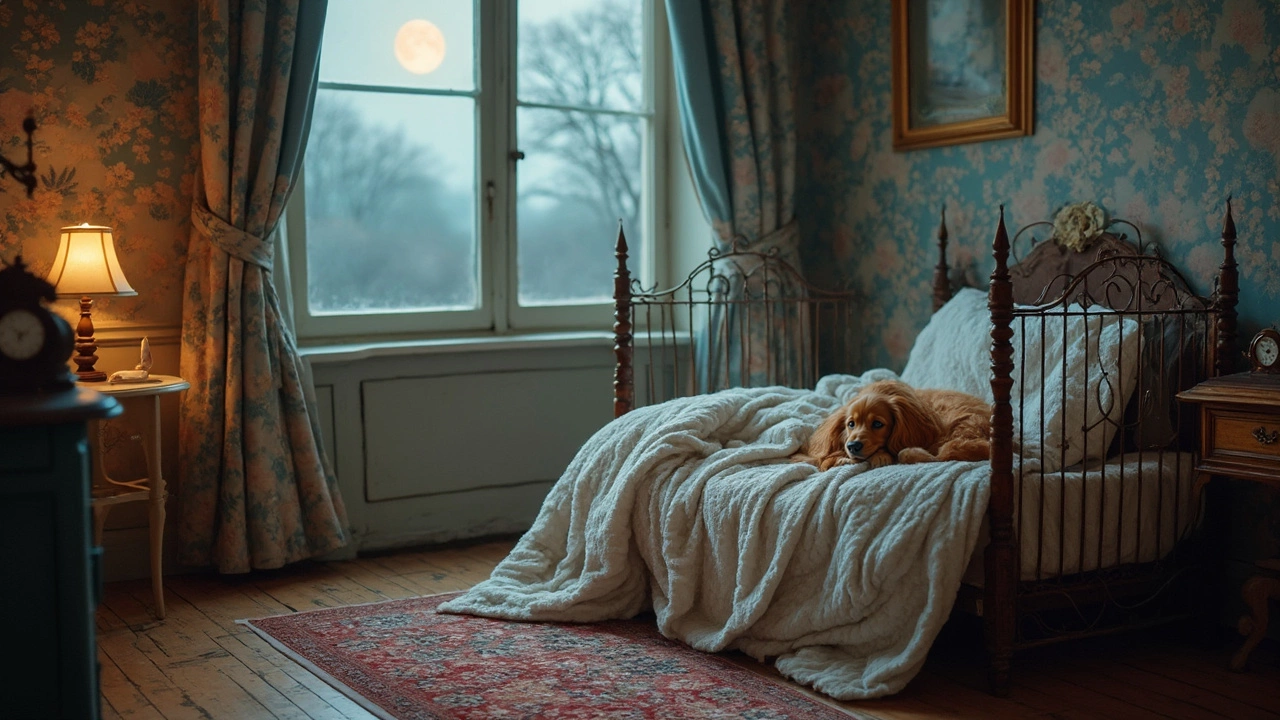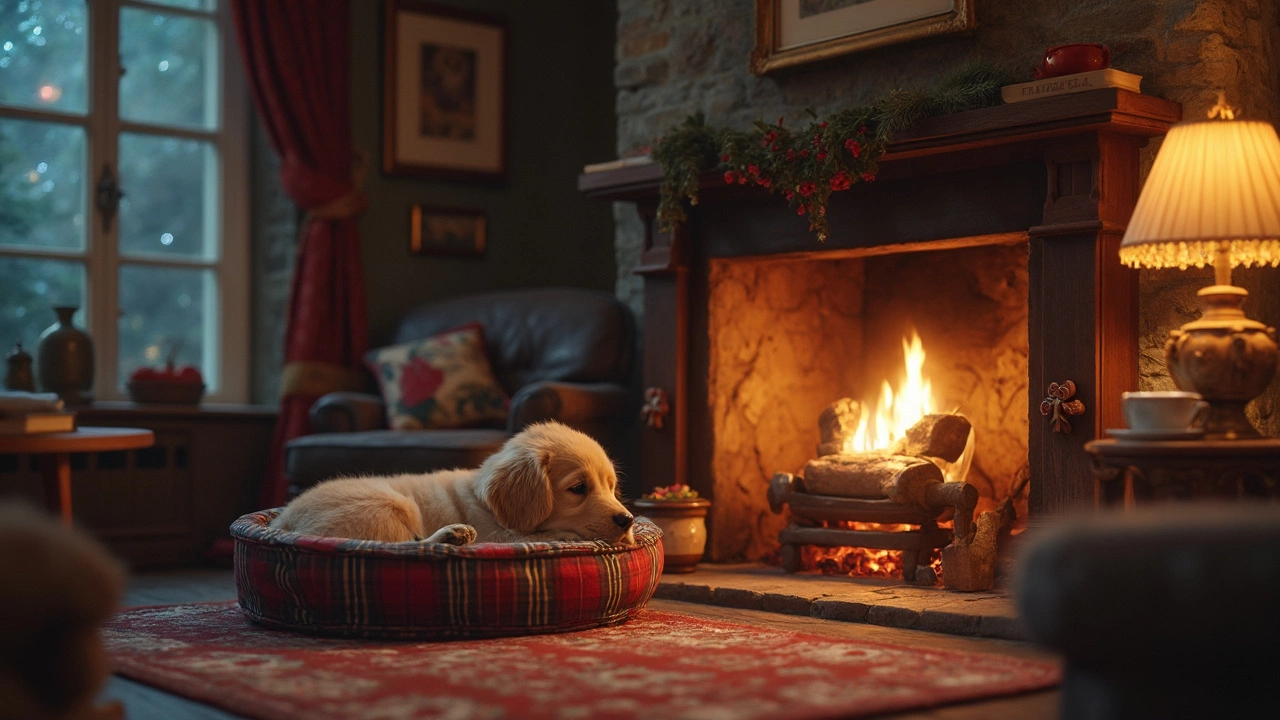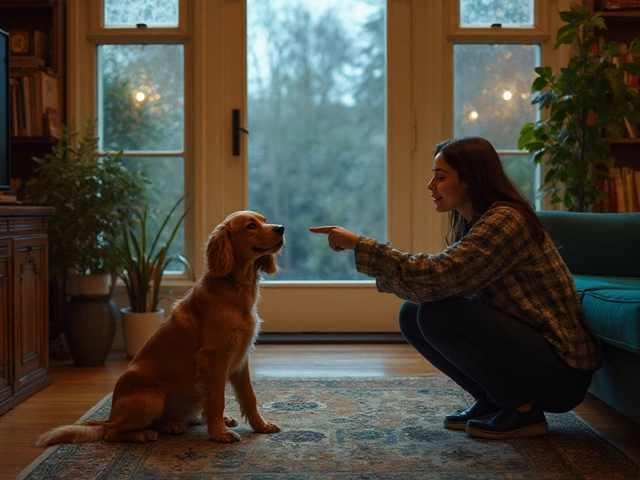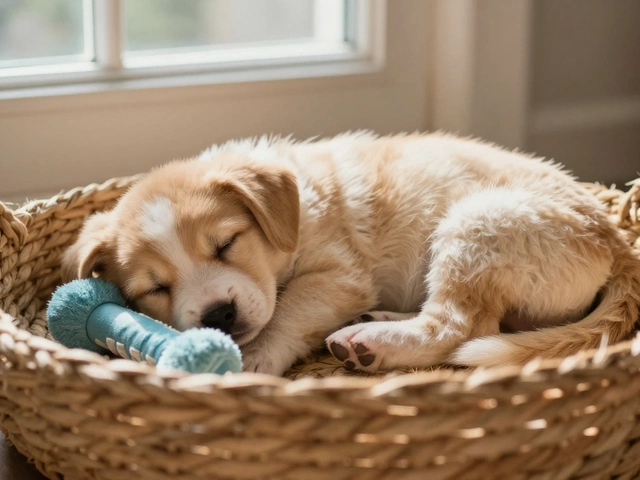So, you've got a new puppy, and it's the cutest little ball of fluff you've ever seen. But when it comes to bedtime, things might not be going as smoothly as you'd hoped. Where should your puppy sleep at night? Picking the right spot is more than just making sure they're comfy—it's about setting the stage for good habits and restful nights.
First up, let's talk about why the right sleeping spot matters. Puppies, just like babies, need plenty of sleep to grow and stay healthy. A cozy, safe place helps them feel secure, which makes a world of difference, especially during the first few nights in their new home. Ever hear about crate training? It's not about locking your pup up. It's about giving them a den-like space that feels just right.
Thinking about a crate or a bed? Each has its pros and cons. Crates can be lifesavers for potty training, since pups are less likely to do their business where they sleep. Meanwhile, a plush bed can make them feel right at home. Whatever you choose, consistency is key. Pick a spot and stick with it.
- Why a Good Sleeping Spot Matters
- Crate vs. Bed: Which Works Best?
- Creating a Cozy Sleep Environment
- Establishing a Puppy Bedtime Routine
Why a Good Sleeping Spot Matters
Choosing the right sleeping spot for your puppy is more crucial than it seems. A well-selected place can do wonders in making your new furry buddy feel safe, secure, and at ease. But why exactly does it matter so much? Let's dive into a few reasons that highlight its importance.
Boosts Security and Comfort
Just like us, puppies need a sense of security to rest easy. An appropriate sleeping spot can replicate the cozy ambiance they felt when they were with their mom and siblings. This is particularly vital during their first few nights at your place when they might feel a bit lost.
Supports Development
Growing up is hard work! Puppies need around 18-20 hours of sleep a day to develop properly, mentally and physically. The right environment can ensure uninterrupted sleep, helping them grow into healthy and happy adult dogs. Plus, more sleep means a calmer, less cranky puppy.
Encourages Good Habits
Setting up a dedicated sleeping spot from the get-go can set the groundwork for good habits. For instance, if you opt for a crate, your pup will learn to associate it with sleep and quiet time. This can even help with potty training, as pups are less likely to mess where they snooze.
Facilitates Bonding
A convenient sleeping spot near you can strengthen your bond. Spending the night close to each other, without necessarily sharing the bed, fosters a sense of trust. Hearing and smelling you nearby can be comforting for them.
In short, invest in the right sleeping arrangements. Whether it’s a crate or a plush bed, a good night's sleep for your puppy equals restful nights for you too.
Crate vs. Bed: Which Works Best?
Alright, let's get down to the nitty-gritty of where your puppy should sleep. A question that gets tossed around a lot is whether to go for a crate or a bed. The answer often depends on your lifestyle, your puppy's needs, and your personal preferences.
Benefits of Crate Training
Crates can be incredibly handy. Imagine it as giving your pup their own room. It might sound a bit strange, but crates can be comforting for puppies. They tap into their natural denning instincts, making your little furball feel safe and secure. Not to mention, a crate can be a fantastic aid in potty training. Since dogs don't like to soil where they sleep, it helps them learn bladder control.
Another plus? Traveling becomes way easier. Your pup has an instant portable bed which is familiar to them, even in new surroundings. This familiarity can ease anxiety on trips or during vet visits.
Going with a Bed
On the flip side, you might be more inclined towards a bed. It's like giving them the freedom to move around and get comfy however they like. Plus, if you've got space in your bedroom, you can place their bed nearby, which can be comforting for both of you, especially during those early days when everything is new for your puppy.
A soft, well-cushioned bed can give your pet plenty of respite from hard floors. And let's not forget—they look adorable all curled up on a plush pillow.
Things to Keep in Mind
- If you go with a crate, make sure it's the right size. Your puppy should have enough room to stand, turn around, and lie down comfortably.
- Puppies are curious and teething can lead to chewing—ensure their bed doesn’t have dangerous loose threads or pieces that they might swallow.
Ultimately, whatever you choose, consistency, routine, and a whole lot of love will help make any sleeping spot the right fit for your pup.

Creating a Cozy Sleep Environment
Getting your puppy's sleeping space just right goes a long way in making those puppy nights peaceful. You might be surprised at how the little things can make a big difference.
Choosing the Right Spot
Your cute bundle of joy needs consistency, and that starts with location. Find a quiet area away from household hustle and bustle, but not so isolated that they feel lonely. A corner of your bedroom can be ideal, as your presence reassures them at night.
Bedding Basics
Let’s talk bedding. Go for something soft yet supportive. You’ll want to pick a material that works for all seasons—breathable for summer, cozy for winter. Some folks swear by memory foam for pups with joint concerns. Ensure it's machine washable because, let's be real, accidents happen.
Temperature Control
Puppies aren't great at regulating their body temperature, so make sure their area is neither too hot nor too cold. Around 75°F (24°C) tends to be ideal. If your house runs cold, a heating pad under half the bed can offer some warmth without overheating.
Sound and Light
A dim nightlight can help nervous pups feel secure without keeping them awake. Some puppies respond well to mellow background noise, like a ticking clock simulating a heartbeat. It's a technique that mirrors how they felt with their littermates.
For those curious about the impact of background noise, here's a quick look:
| Type of Sound | Effect on Puppy Sleep |
|---|---|
| White Noise | Minimally Distracting, Soothing |
| Complete Silence | Can Increase Anxiety for Some Puppies |
Taking the time to create a cozy sleep environment pays off in a few weeks when your puppy happily trots to bed when it’s time to rest. They may not say thanks, but their wagging tail will tell you everything you need to know.
Establishing a Puppy Bedtime Routine
Consistency is key when it comes to setting up a bedtime routine for your new puppy. Just like humans, dogs thrive on routine and knowing what to expect. Let’s dive into some straightforward steps to help you and your pup get into a rhythm.
Same Time, Every Night
Pick a bedtime and stick to it. Dogs have internal clocks just like us, and setting a specific time for sleep helps them wind down. This regular schedule will stabilize their behavior and help with their energy levels during the day.
Wind Down Before Bed
A puppy that's bouncing off the walls won’t settle easily. Ensure they've had playtime and a toilet break before bed. A short walk or a bit of fun in the yard can get rid of excess energy and make the transition to bed smoother.
Limit Food and Water
You don't want them waking up in the middle of the night for a bathroom break. Try to have your pup finish eating a couple of hours before bedtime. The same goes for drinking water, although this might need adjustment based on your pup's needs.
Create a Calming Environment
- Keep lights dim to help set the mood for sleep.
- Consider playing soft, soothing music or using white noise to mask any disruptive sounds.
- A gentle petting session often relaxes puppies and prepares them for slumber.
Consistency and comfort are what you’re aiming for here. With your guidance, your puppy will learn when it’s time to be an energetic ball of fun and when it’s time to rest. It might take a little patience, but your puppy will soon be the bedtime champ of your household!







